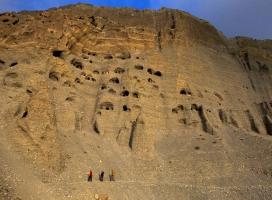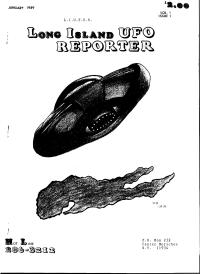Copy Link
Add to Bookmark
Report
Technical News Association 005

################ ##### ### #
## ## ## # ## # ###
# ## # # ## # #####
## # ## # # ###
## # ## # # ###
## # ## # ###########
## # ## # # ###
#### # ### # ###
###### ### ## ### #####
------------------------------------------------------------------
| |
| Technical News Association |
| |
| #5 |
| |
| The $100,000 Diskette |
| |
| Typed By Skyewalker |
| Written By Mike Geraghty |
-----------------------------------------------------------------
You're driving down the Garden State Parkway in the left lane at
70mph when out of the blue a State Police cruiser appears in your
rear view mirror, lights activated and siren wailing. Your flat out
caught but decide you can outrun the Troop car and speed away in an
attempt to flee. While fleeing in your car you purposely ram another
vehicle but loose control of your own car and crash into the guard
rail. You run into the woods in a desperate attempt to get away. The
Trooper follows close behind and eventually tackles you and places
you under arrest.
The Trooper brings you back to his Troop car, and incidental to
the arrest conducts a search of your vehicle. As a result of the
search the Trooper finds one-half ounce of marijuana, one
unregistered pistol loaded with hollow point bullets, stolen credit
cards, and 10 unauthorized copies of MS-DOS 5.0 and the proceeds of
the sale of 10 other copies of DOS.
Given the above set of circumstances, taking into account all the
laws that were broken, which violation do you think is the most
serious? Would you believe the sale and possession of unauthorized
copies of DOS? That's right.
Just recently, Congress passed, and President Bush signed into
law a new set of penalties regarding software piracy and copyright
infringement. Software piracy is now a felony. The penalties include
liability for damages suffered by the copyright owner plus any
profits of the infringer that are attributable to the copying, or
statutory damages of up to $100,000 for each work infringed. The
unauthorized duplication of software is also a federal crime if done
willfully and for purposes of commercial advantage of private
financial gain. Criminal penalties include fines of as much as
$250,000 and jail terms of up to 5 years.
Unfortunately many of us don't realize the seriousness of the
penalties involved in software piracy. Hack, it seems so harmless to
copy a game and pass it onto a friend so that he/she may enjoy the
game just like you. What are friends for? The lax attitude of the
general public to what is now a serious crime is sobering. To many
copying software is done brazenly and without guilt, more so than the
average driver who disregards the speed limit while keeping up with
the flow of traffic. It seems harmless. but none the less, it's
illegal. But a speeding ticket doesn't involve a $100,000 fine.
Software is protected by federal copyright laws at the time of
its creation. These rights are explicitly stated in the Copyright
Act, in Title 17 of the U.S.Code. In essence the Copyright Act gives
the owner of the copyright the exclusive rights to reproduce the
copyrighted work, and to distribute copies of the copyrighted work
(Section 106).
With all copyrighted software that you buy, you are in essence
purchasing a license to use the software. You are not an owner of the
software and therefore your rights are set forth according to the
license agreement contained within the package. These licenses vary
and many are very confusing. A rule of thumb to follow with these
licenses in to understand that you now own the right to copy the
software onto a single computer and to make another copy for archival
purposes only.
We may not all agree on the restrictions of these licenses
however, rather than just disregarding the license agreement and
breaking the law, writing a letter to the owner of the copyright
stating your problem with the license is a more feasible course of
action. Recently, I received an Atlas program that listed just about
every street in the U.S. I travel around the state frequently and
figured it would be a great tool in helping me navigate through
various cities and neighborhoods. I also thought that I could now
print out a great map to my house so that it would be simple to find.
After creating the map and while waiting for the printer to print the
25 copies, I read through the license agreement. In it was a
statement that "prohibited the use of this product for navigation by
land, sea, or air". There went my plans for that product. This is one
example of unreasonable license agreements. For what else would you
use an atlas? I don't agree with the license, but then again my
disagreement doesn't give me the right to disregard it. I returned
the program.
In response to many dissatisfied users, software companies are
beginning to change the restrictions on its licensing policies.
Rather than one copy per computer, some manufacturers allow a user to
copy the program to multiple computers as long as it is not used
simultaneously. Borland has a "No Nonsense" policy that follows along
those lines. I strongly urge you to read through the license
agreements included with your software. They can be very educational
and some might surprise you.
Other actions taken by software manufacturers in response to
licensing confusion is the introduction of site licenses for
businesses. This is where a business purchases a software program
which includes one set of diskettes and manuals but licenses for the
software for more than one computer. In some instances more than one
set of manuals and/or diskettes are included. Network utility
companies offer a variety of utilities to ensure that license
agreements are adhered to across Local Area Networks (LANs). One such
product is Site Lock whereby the network administrator can set the
number of licenses which the company owns so that only that many
users may access the licensed software at any one time. Not only does
an arrangement like this ensure that the company stays within the
law, but it also allows the company to save money by purchasing a set
number of licenses rather than a license for each user with a login
account. This follows the premise that not every user will need to
access a given program at all times.
In addition to the copyright infringement laws dealing with
duplication of software these is also a Software Rental Amendments
Act of 1990 (Public Law 101-650). This law prohibits the rental,
leasing, or lending of original copies of any software without the
express permission of the copyright owner.
At one time the CJPCUG considered setting up a CD-ROM rental
committee that would purchase software on CD-ROM and charge members a
monthly rental fee for the use of this software. The intentions
behind the idea were above reproach, unfortunately as we researched
the matter we came across the Software Rental Amendments Act. Our
plans were brought to a screeching halt.
So who loses when software is pirated? I'm sure it doesn't affect
the multimillionaire CEO's. Bill Gates is not going to feel the pinch
of lost profits by one person copying DOS 5.0. Phillippe Kahn is not
filing chapter 11 over an unauthorized copy of Quattro Pro and Jim
Manzi won't be homeless if you share a copy of Ami Pro with a friend.
In the end its folks like you and I who will be hurt. Just like the
dregs who commit insurance fraud which thereby raises the premiums
for honest folks like you and I, those that pirate software will also
affect your pocketbook.
And when the software is pirated who is there to enforce the law?
Do you call the local P.D.? The State Police? How about the FBI or
Secret Service? Unfortunately, all of these law enforcement agencies
are too understaffed and underfunded to deal with all the problems
that abound in society. So the chances that they have a unit to deal
with computer crimes or if they even understand computer crime is
remote. For now the reporting agency is the Software Publishers
Association (SPA) an organization similar to MADD (Mothers Against
Drunk Driving), only they look out for the rights of piracy victims.
With this article I hope that I've made you aware of the
circumstances involving software piracy. I'm sure there are many
questions that I've provoked with this article. If you would like
more information on the above topics of have specific questions be
sure to contact the SPA at:
Software Publishers Association
1730 M. St., NW, Suite 700
Washington, D.C. 20036
Phone: 202-452-1600
Fax: 202-223-8756
Piracy Hotline: 1-800-388-7478
And remember, as I pirate their slogan,
DON'T COPY THAT FLOPPY!
I would like to personally thank the CJPCUG (Central Jersey
PC Users Group) for their permision to rewrite this artical for
distribution. They can be reached at
Central Jersey PC Users Group
366 Hudson Drive
Brick, New Jersey 08723
-------------------------------------------------------------
Technical News Association Distribution Sites
The Wall BBS (908)294-8830
Skyline BBS (908)363-3832
-------------------------------------------------------------
















